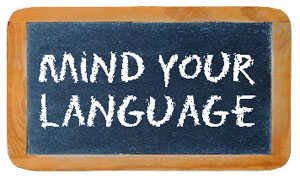
Ratna Raman
Despite precise postures, the body is programmed to malfunction over time. Fatty liver, enlarged spleen, blocked arteries, irritable bowel syndrome, gallstones, knock knees, tennis elbow and varicose veins are medical conditions factually recorded through language. The expression “Narendra lost his footing, tripped and fell down,” is empirical detail describing a literal fall.
Language is also adept at communicating abstract ideas through various body parts. ‘Wearing one’s heart on one’s sleeve’ (open display of emotions), 'keeping fingers crossed' (hoping for good luck), ‘heart jumping into the mouth’ ( great fear or nervousness) and being ‘head over heels’ (topsy-turvy state of being in love) are not advanced body postures achieved at the end of strenuous calisthenics (exercises). ‘Gut-wrenching’ experiences involve much ‘stomach churning’ and remain visceral (deep inward feelings). The gut and the stomach are located deep inside the human body and can metaphorically highlight the human condition.
“Rajnath ‘racked his brains’ but could not come up with any answers.” This tells us that Rajnath failed to deliver, despite strenuous effort. The word ‘rack’ has origins in medieval torture.
A ‘slap in the face’ is an insult\humiliation. Duryodhana 'slaps his thigh' (boastful, disrespectful, possibly lewd gesture) on several occasions in the Mahabharata. “A slap on the back” implies commendation or approval while ‘a slap on the wrist’ signifies mild rebuke or reprimand.
‘Wringing one’s hands’ indicates despair, helplessness or inability. Wanting to ‘wring someone’s neck’ is a verbal demonstration of extreme displeasure. Acting upon this impulse could cause death.
‘Pulling one’s hair out’ indicates exasperation. ‘Letting one's hair down' implies being in a relaxed or restful frame of mind. (Our myths however have Kaikeyi's hair in disarray, communicating her resentment to Dasaratha. Draupadi, dragged out of her chambers by her long hair, refused to adorn or braid them until she soaked them with Dusshasana’s blood, extending the metaphor 'blood-thirsty' to her hair roots. Mythical lndian women who let down their hair herald trouble; they are not Rapunzels. ‘Widow's peaks’ (v-shaped hairline in the centre of the forehead) and ‘bee-stung lips’ (naturally swollen or through botox) are indices to female beauty.
‘Thinning hair’ and ‘split ends’ benefit from salon treatments. One cannot ‘lose sleep’ or ‘lie awake’ (anxiety symptoms) over 'hair-splitting' (split-hair ends are barely visible) arguments. ‘Hair-raising’ experiences are thrilling or scary, but having ‘bad hair days’ indicates both unmanageable hair and minor mishaps.
Sushant denied ‘knocking up’ (impregnating) Anita, although he had been 'seeing her’ (having a relationship) awhile. This provoked Anita’s brother Rohit to ‘knock him down’ (use of violence). Anita was so distraught at this turn of events she could have been 'knocked down with a feather' (traumatised and unsettled by the mildest pressure).
A ‘heavy heart’ is weighed down with grief. A 'bleeding heart' remains constantly overwhelmed by everyone's misery while a 'brave heart' shows exemplary courage.
‘Pinching something,’ means stealing an object. 'Pinching someone' involves squeezing flesh between finger and thumb to cause pain. This is very different from 'pinching oneself hard,' an activity undertaken by those with difficulty in believing that something good can happen to them. Such people, pinch themselves hard, feel corresponding pain, are convinced they are not dreaming and embrace their good luck with 'open eyes.'
'Nerve racking' and 'ear splitting' are good descriptions of the impact of high decibel wedding celebrations on the auditory and nervous systems. Rides on unlevelled roads in vehicles with poor shock absorbers can make for a ‘bone-rattling’ experience.
‘Achilles’ heel’ implies grave vulnerability. (Achilles' heel was his only weak spot. The rest of his body, dipped in magic elixir, was extremely strong). Viewing the body's limitations with a ‘jaundiced eye’ (prejudice) can prove to be our Achilles' heel (undoing).



























